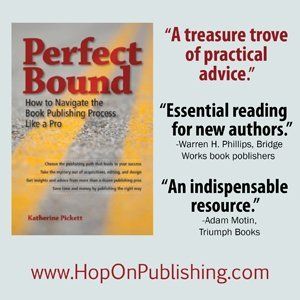The POP Newsletter
Enough Work to Go Around
In the freelance-editing field, the topic persistently arises of whether to share client lists with other editors. New editors looking for a way into the industry hope that some nice, established editor will put them in touch with the right people. Some new freelancers might even expect this, seeming to not understand exactly what they are asking. Conversely, established editors want to protect what they have earned with their years of experience and may be reluctant to share contacts with just anybody.
Should new freelancers expect a helping hand from the veterans among us? And just how important is it to guard your client list once you have built it?
Most of us received some amount of help in getting where we are. I know I did—a lot of help—and so, from the beginning of my career, I have tried to give back. Often that has meant sharing my knowledge of the industry with those looking to break in. Other times, it has meant sharing clients.
Several years ago, I said as much to a fellow freelancer, someone I considered a mentor. She said, “I don’t understand that saying. Give back what?” She felt she never was given anything she needed to return. As fate would have it, a few years later, her main client had dried up and she called me looking for a way to keep her business going. She had taught me plenty about editing; I was ready to do whatever I could. To start, I put her in touch with one of my clients who I knew was looking for editors. She never followed up. Perhaps not surprisingly, her freelance company is no longer.
What did I learn from this experience? This woman, who felt she had never been given anything she did not earn, was unable to see the gifts she had received. She acknowledged neither the training and education provided by her capable teachers nor the job opportunities and support her colleagues had given her. And she ended up with nothing. I adopted the opposite stance, and my business is stronger than ever.
New entrants into the freelance field need to remember that building a client list takes time. There should be no expectation of receiving client contact information without putting in the effort to hone the required skills and build relationships. Like many editors I have spoken with, I have had brand-new editors say to me, “Hey, I’m gonna need to get some contacts from you,” as if it were a given. That is when I say, “You will need to get your résumé in order before I can confidently refer you to any of my clients. Here are a few things you will need….”
I have also received calls from experienced editors who are just branching out into the freelance world. Those who are polite, respect my time and understand that any contact information I share is given because I trust them, I am happy to put in touch with a few clients. Like many others, I have clients with more work than editors, and it doesn’t hurt me to share that information. In the cases when I am the beneficiary of someone else’s client contact information, I say thank you. Then I not only follow up, but also provide excellent service for that client. I know my actions reflect on the person who made the connection and I will not let them down.
To be clear, I do not advocate giving away your client list to every new editor or freelancer who asks for it. As noted, the established editor may be putting his or her reputation on the line when referring a new editor to a client. Therefore, you have to know something about and have a certain amount of trust in the other freelancer’s abilities and character.
So, what do you do when the asking editor does not meet your standards for referrals? In lieu of giving away contacts, consider educating the person about how you found and held onto the clients you have. Although one can gain a gig based on a referral, maintaining the client demands high-quality work. At times, new freelancers need to be reminded of that.
Some established editors don’t only
begrudge giving away their contacts. They also do not wish to give away their
time, especially to those who are just dipping a toe in the water. I (and many
others) enjoy educating new editors about publishing. Many people did the same
for me when I was coming up, and I feel I owe it to the universe to share what
I have been given. That said, these “young whippersnappers” can be the worst
offenders in assuming that veteran freelancers should willingly give away their
contact lists. More often, I have found they are well-meaning and simply need to
be told what they can rightly expect.
Although it may feel as if you are wasting your time when you spend 30 minutes talking to a “newbie” about how to break in, consider it an investment in your future. Freelance work often fluctuates, but if you take the time to help others, you will have a network of people ready to assist you when you need it.
Helping the next generation can take many forms, such as sharing knowledge, time or clients. Next time some new freelancer asks you for a helping hand, I hope that you will remember the support you received and send that back out into the world. None of us has gotten where we are all on our own. And in this world of blogs, journals, trade book publishers, corporations, nonprofits, packagers, textbook publishers, academic presses and self-publishers, there really is enough work to go around.




